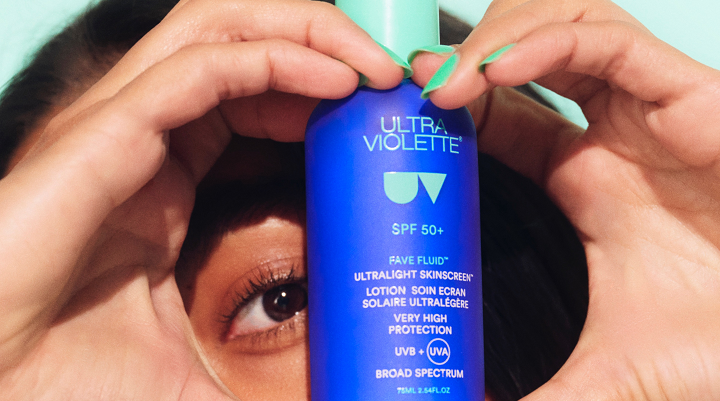Skincare reigns supreme in the beauty industry – and for good reason. While makeup has its place, the real secret to a radiant complexion lies in quality skincare. With increasing consumer awareness, a vital lesson has emerged: daily sunscreen is your skin’s best friend. Beyond shielding us from skin cancer, sunscreen has earned its stripes as a top anti-ageing ally. Without it, even the mightiest serums and luxurious lotions may fall short. The message is crystal clear: Seeking to banis
nish hyperpigmentation? Don’t forget your SPF. Craving brighter, more even skin? Don’t forget your SPF. Aiming to defy the signs of ageing? You guessed it – don’t forget your SPF. This golden rule is orchestrating a profound transformation of our morning skincare rituals. But how is the revelation affecting the SPF market?
Today, beauty devotees worldwide are making major investments in their everyday sunscreens and, as with any skincare product, they’re seeking out the world’s leading formulations. The most sought-after sunscreens making waves globally hail from Australia, Japan and Korea. But what makes these formulations so superior? Let’s tackle the Australian SPF first.
Australia basks under some of the world’s harshest UV rays, with the highest UV levels prevalent along the equator. Hence, Australians take sunscreen seriously, with the Therapeutic Goods Administration (TGA) ensuring rigorous scrutiny and swift approval of formulations. Meanwhile, Japan and Korea contribute their own world-class innovations with watery-thin, featherlight, sweat-resistant formulas, a perfect complement to everyday skincare. In this corner of the globe, the pursuit of fair skin has driven a need for SPF innovation for centuries.
But what makes these formulations truly world-class? The answer lies in the labyrinth of regulations, and location plays a pivotal role. You see, Australians consider SPF a therapeutic good, and as a result, SPF formulations in Australia must satisfy a rigorous testing process. Quite similarly, the US considers SPF products an over-the-counter drug, and it, too, has a strict testing process. However, a stalled approval process due to a lack of data now has the US lagging behind the rest of the world. In fact, in the US, sunscreen regulation by the Food and Drug Administration (FDA) is so far behind, that US Congress has stepped in to speed up progress. Meanwhile, in Europe and the UK, sunscreen is regarded as a personal care (cosmetic) product, making the approval process less intense.
In Southeast Asia, sunscreen is considered either a cosmetic product or a ‘quasi-drug’, (a product that lies somewhere between a cosmetic and a pharmaceutical), depending on the country in which it is manufactured. Simply put, sunscreen classification shapes the rules and timelines for bringing these formulations to market.
So, while certain global markets wrestle with regulatory red tape, Australian SPF brands have been capturing the global spotlight. So much so, that Aussie-owned brands like Ultra Violette are outranking global skincare brands in places and dominating the category. As Ultra Violette launches into the Middle East via the Sephora network, the brand’s global expansion has its world-class sunscreens now sold in 25 countries and over 250 stores worldwide. Customers can now purchase Ultra Violette in the UK, Europe, New Zealand, Southeast Asia, and the Middle East. (The US is not yet making the list.)
Ava Chandler-Matthews, co-founder of Ultra Violette, explains the challenges of entering into a new market: “Sunscreen is regulated very differently in every market we have entered. Each time we expand, we are up against a new set of testing and regulatory processes. Some filters and ingredients are approved in Australia that are not approved in other places around the world, which makes having a global sunscreen brand very challenging.”
“What is going to work in the Canadian snow won’t work in the Middle East – you need to consider all climates and skin needs when it comes to the product pipeline and our offering. We also need to ensure our visual communications can stand up to a consumer who has never heard of us. In Australia and the UK, we have relatively high brand awareness but this is not the case yet in France, Qatar, Germany, Spain, Thailand.
“So it’s been a big project working towards ensuring our brand is clear, and that people know just by standing in front of our product in a Sephora store, what we stand for, and the expertise we bring to the sun space.”
Meanwhile, Korean skincare brands, such as the acclaimed Beauty of Joseon, are experiencing an unprecedented surge in demand as word spreads across social media about their groundbreaking formulas. While the thirst for these products is on the rise, the quest for trusted retailers capable of shipping them globally faces its own set of hurdles. Beauty editors recommend that consumers tread the online shopping path cautiously, opting to shop online from legitimate, authorised websites while wisely avoiding third-party vendors seeking to capitalise on the heightened demand.
As the rest of the world scrambles to catch up, brands armed with advanced formulas are gearing up to meet global demand. The golden age of sunscreen is upon us, and it’s time to shine – safely.

